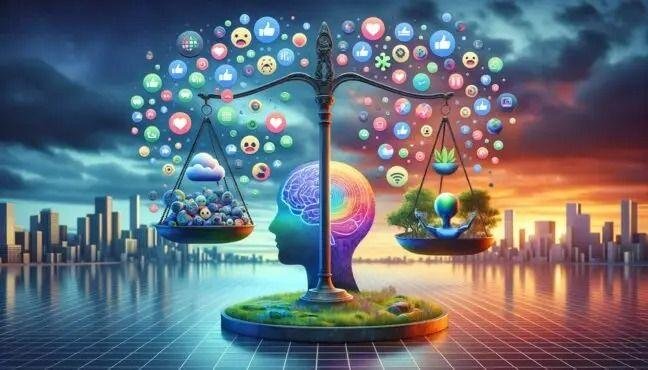In an era dominated by smartphones, social media, and constant connectivity, the intersection of mental health and digital technology has become increasingly significant. The digital age has revolutionized the way we communicate, work, and access information, but it has also introduced new challenges and considerations for mental well-being.
The Double-Edged Sword of Connectivity
Digital technology has undoubtedly enhanced connectivity, allowing people to stay in touch with friends and family regardless of geographical boundaries. Social media platforms facilitate instant communication and networking opportunities, fostering virtual communities and support networks. However, this constant connectivity can also blur boundaries between work and personal life, leading to increased stress and burnout.
Moreover, the pervasive nature of digital communication can amplify feelings of loneliness and isolation paradoxically. While individuals may have hundreds of online connections, genuine emotional support and meaningful relationships can sometimes be lacking. The pressure to maintain a curated online persona can also contribute to feelings of inadequacy and anxiety, as people compare themselves to idealized versions presented on social media.

Impact on Psychological Well-being
The digital age has altered the landscape of mental health in several ways. Research suggests a correlation between excessive screen time and mental health issues such as depression and anxiety, particularly among young people. The constant stream of information and notifications can overwhelm the brain, leading to cognitive overload and decreased ability to focus.
Additionally, cyberbullying and online harassment have emerged as significant concerns, especially for adolescents and young adults. The anonymity and reach of digital platforms can exacerbate the harmful effects of bullying, causing profound psychological distress and even leading to suicidal ideation in extreme cases.
On the other hand, digital technology also offers innovative solutions for mental health support. Mobile apps and online platforms provide access to therapy, mindfulness exercises, and self-help resources, making mental health services more accessible and affordable for many.
Ethical Considerations and Privacy Concerns
As technology continues to advance, ethical considerations regarding mental health in the digital age have come to the forefront. Issues such as data privacy, confidentiality in online therapy sessions, and the ethical use of artificial intelligence (AI) in mental health assessments require careful scrutiny. Ensuring that digital tools adhere to ethical guidelines and protect user data is crucial in fostering trust and safeguarding mental well-being.
Promoting Positive Digital Habits
Despite the challenges posed by the digital age, there are steps individuals can take to promote positive mental health in their digital interactions:
- Setting Boundaries: Establishing clear boundaries between work and personal time can help mitigate the stress of constant connectivity.
- Mindful Consumption: Being mindful of the content consumed on digital platforms and its impact on emotions can reduce negative psychological effects.
- Seeking Balance: Finding a balance between online interactions and offline activities that promote well-being, such as exercise, hobbies, and face-to-face socialization.
- Digital Detox: Periodically disconnecting from digital devices to recharge and reconnect with oneself and loved ones.

Conclusion
Navigating mental health in the digital age requires a nuanced understanding of both the benefits and challenges posed by digital technology. By promoting responsible use, fostering ethical standards, and leveraging technology for positive mental health outcomes, we can harness the potential of the digital age to support and enhance mental well-being in our increasingly interconnected world. Embracing these principles ensures that as technology evolves, mental health remains a priority, fostering a healthier and more balanced digital society for all.








